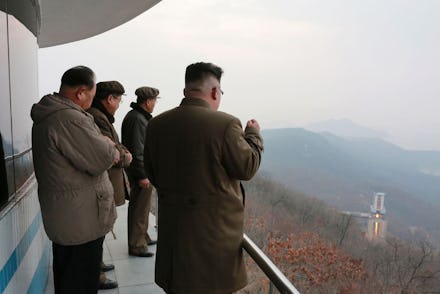North Korean missile tests continue as U.S. strikes hardline stance

The government of North Korea is touting a "great leap forward" after it successfully tested a new high-thrust rocket engine which could potentially aid the country in its efforts to develop an intercontinental ballistic missile capable of striking the U.S., CNN reported.
North Korea formally insists the rockets are for its space program. In a statement, leader Kim Jong-un called the test "historic" and added the whole world would "soon witness what eventful significance the great victory won today carries."
North Korea tested several rockets this month, including four on March 6, and other countries are noting the apparent technical strides forward in the country's missile program. According to CNN, Japanese schools are conducting drills to prepare students for the possibility of a North Korean strike on U.S. troops stationed throughout the country.
Gen. Joseph Dunford, the chairman of the Joint Chiefs of Staff, had previously warned of a fresh round of missile tests. while Secretary of State Rex Tillerson warned President Donald Trump's administration considers talks over the North Korean nuclear program a failure and is willing to take measures including pre-emptive military action.
In a recent interview with the Independent Journal-Review, Tillerson said North Korea's nuclear capabilities posed an "imminent threat," language typically reserved for future targets of military action. Trump himself has never struck a coherent line on North Korea and seems confused about some basic facts about the country.
The U.S. has the capability to shoot down at least some long-range North Korean missiles with its naval destroyer-mounted Aegis defense system, and recently deployed another system, the Terminal High Altitude Area Defense system, designed to shoot down shorter-range missiles North Korea might launch at nearby countries like South Korea or Japan.
As the New York Times recently noted, a U.S. strike on the North Korean nuclear program could potentially fail to stop missiles from getting off the ground, while an all-out war with the Kim regime would "almost certainly" result in it successfully using some nuclear or chemical weapons, "potentially killing millions."